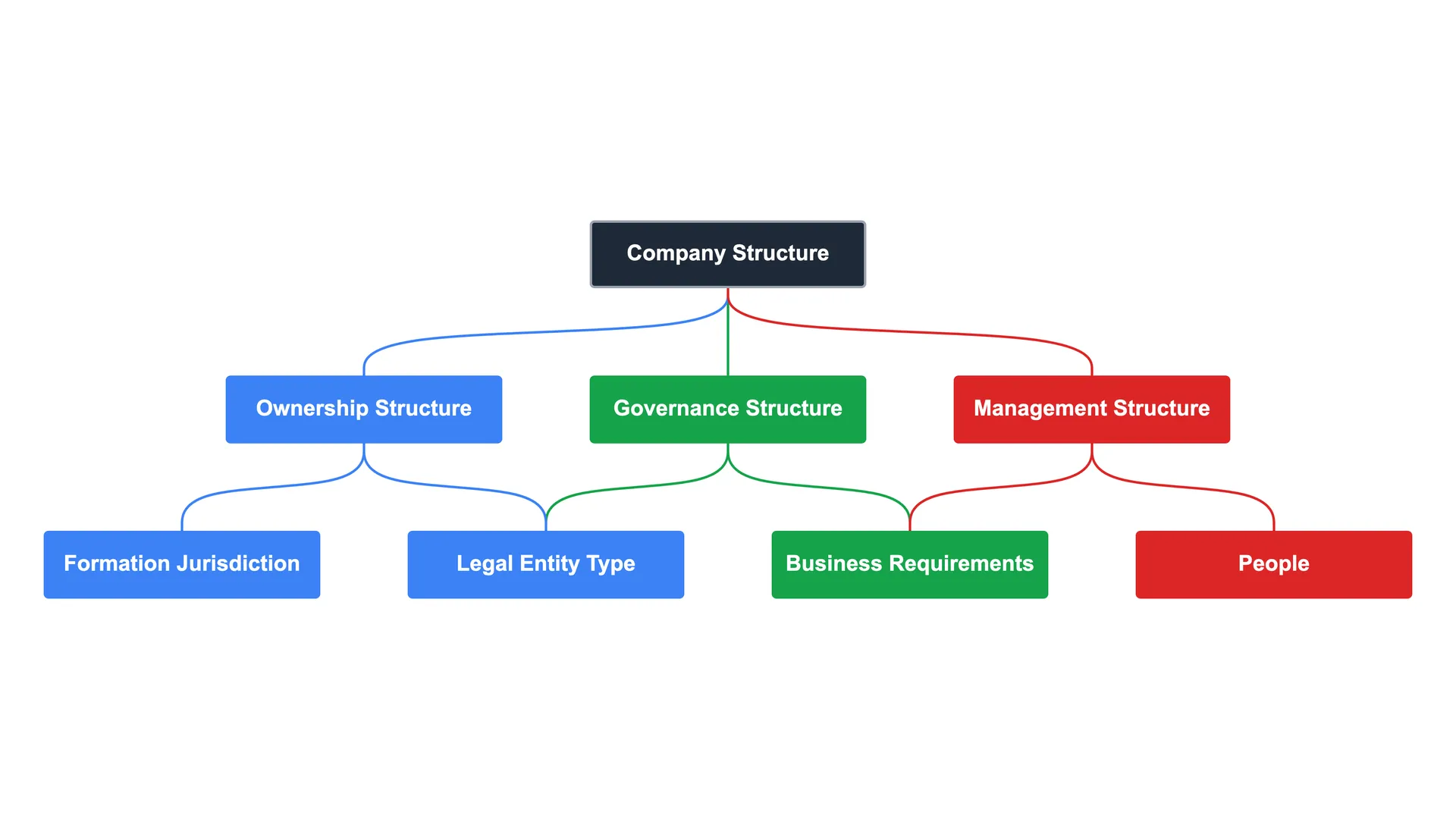Starting a new company is one of the most exciting milestones for any aspiring entrepreneur. It marks the beginning of a new journey filled with opportunities, challenges, and the potential for long-term success. While it is tempting to dive straight into building your product or service, one of the most crucial decisions you need to make right at the beginning is choosing the right business structure. The structure you select will not only shape how your company operates but also affect your taxes, liability, fundraising potential, and even your day-to-day decision-making. Firmax Hungary makes it simple to set up company in Hungary, providing professional support and seamless solutions for your business formation needs. In this blog, we will explore why your business structure matters and how it can impact the future of your company.
Understanding Business Structures
Before we dive into the importance of business structures, it’s essential to understand what they actually are. A business structure defines the legal framework within which your company operates. Common structures include sole proprietorships, partnerships, limited liability companies (LLCs), corporations, and more specialized entities such as S corporations or non-profits. Each of these has unique legal and tax implications.
For instance, a sole proprietorship is the simplest form of business ownership, often suitable for freelancers and small startups, but it does not provide personal liability protection. On the other hand, corporations and LLCs provide a legal separation between personal and business assets, which can be vital for risk management. The structure you choose is not just a formality—it sets the foundation for how your business will grow, operate, and be perceived in the market.
Liability and Risk Protection
One of the most significant reasons your business structure matters is liability protection. In a sole proprietorship or general partnership, the owner’s personal assets are directly tied to the business. This means that if the company incurs debt or faces a lawsuit, creditors can come after your personal property, including your home or savings.
In contrast, forming an LLC or corporation creates a separate legal entity. This shields your personal assets from business liabilities. For entrepreneurs in industries with higher risks, such as construction, manufacturing, or healthcare, choosing a structure that offers liability protection is critical. Without this protection, a single lawsuit or financial mishap could wipe out years of hard work. Thus, the right structure ensures your personal life is safeguarded, even if your business faces challenges.
Tax Implications and Financial Flexibility
Taxes are another key reason why your business structure matters. Different structures are taxed differently, and this can have a significant impact on your profitability. Sole proprietorships and partnerships generally pass business income directly to the owner’s personal tax return, which can sometimes mean higher tax liability.
LLCs offer flexibility since they can be taxed as sole proprietorships, partnerships, or even corporations, depending on what benefits the business most. Corporations, on the other hand, may face double taxation, but they also have opportunities for tax-deductible benefits such as healthcare or retirement plans for employees.
Choosing the right structure allows you to optimize tax efficiency. For example, a growing business may benefit from converting into an S corporation to reduce self-employment taxes, while startups looking for investors might prefer a C corporation to allow for stock issuance. Poor decisions here could mean paying thousands more in taxes each year.
Attracting Investors and Raising Capital
If your long-term goal is to raise funding, your business structure plays a central role. Investors generally prefer corporations because they offer clear ownership through shares and provide a structured governance system. Venture capitalists, in particular, rarely invest in sole proprietorships or partnerships due to the legal and operational limitations.
An LLC might work well if you are bootstrapping your business or working with a few partners, but when you want to scale quickly with outside investment, converting to a C corporation is often necessary. Having the right structure from the start can also make the process of raising capital smoother and more credible in the eyes of banks, lenders, and angel investors. A misaligned structure could deter potential investors, even if you have a brilliant idea.
Compliance and Legal Requirements
Another factor to consider is compliance. Different business structures come with varying levels of paperwork and regulatory requirements. For example, sole proprietors face minimal formalities, while corporations are required to hold annual meetings, maintain bylaws, and file regular reports with the government.
While compliance may seem like a burden, it also brings benefits. For instance, having a corporate structure creates transparency and accountability, which can enhance your reputation in the market. It shows that you take your business seriously and are committed to following legal frameworks. On the flip side, failing to meet compliance requirements for your chosen structure could result in penalties or even the loss of your business license.
Operational Flexibility and Decision-Making
The structure you choose also affects how decisions are made within the business. In a sole proprietorship, you have complete control and make all the decisions yourself. While this may work for small ventures, it can limit growth if you want to scale. Partnerships allow for shared decision-making, but disagreements can sometimes lead to conflicts.
Corporations and LLCs, however, operate under defined management structures, which help streamline responsibilities and reduce disputes. Having a clear governance system can be especially important if you have multiple founders, board members, or shareholders. By choosing the right structure, you establish a framework that ensures smoother decision-making and accountability, both of which are critical for long-term success.
Brand Image and Credibility
Your business structure also influences how your brand is perceived. An incorporated business often carries more credibility in the eyes of clients, suppliers, and partners compared to a sole proprietorship. Being an LLC or corporation signals stability, professionalism, and long-term commitment. This perception can be the difference between winning a lucrative contract and losing it to a competitor.
For example, large corporations may prefer dealing with incorporated entities because it reduces their risk and ensures compliance with contractual obligations. In competitive markets, your structure can therefore serve as a silent marketing tool that boosts your credibility and builds trust.
Long-Term Growth and Exit Strategy
When setting up a company, it’s easy to focus only on the present, but your structure also affects your long-term growth and exit options. If you plan to sell your business, merge with another company, or pass it down to family members, your chosen structure will influence how seamless those transitions can be.
Corporations, for example, allow for easier transfer of ownership through the sale of shares, making them attractive to potential buyers. Sole proprietorships, on the other hand, are much harder to transfer since the business is tied directly to the owner. Thinking ahead about your long-term goals and exit strategy can help you select a structure that aligns with your vision for the future.
How to Choose the Right Business Structure
Now that you understand why your business structure matters, the next step is choosing the right one. This decision should be based on several factors, including:
- The level of liability protection you need
- Your tax preferences and financial goals
- The complexity you are willing to manage
- Your funding and investment needs
- Long-term growth and exit strategy
It is often advisable to consult with legal and financial professionals before finalizing your choice. Their expertise can help you evaluate your options based on your industry, location, and business objectives. Remember, while you can change your structure later, doing so may involve additional costs, paperwork, and disruptions to your business. Getting it right from the start can save you significant time and money.
Final Thoughts
Setting up a new company is not just about having a great idea or a solid business plan. The structure you choose plays a foundational role in determining your liability, tax responsibilities, credibility, and growth potential. By carefully considering your options and aligning them with your goals, you give your business the best chance to thrive.
In short, your business structure is not just a legal requirement—it’s a strategic decision that can shape your company’s success. Take the time to choose wisely, and you’ll be building on a foundation that supports your entrepreneurial dreams for years to come.



































